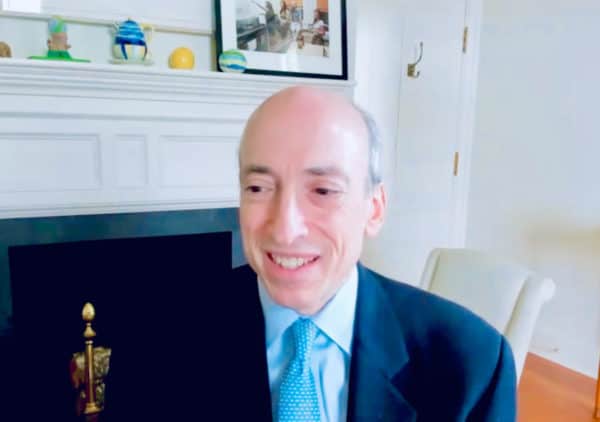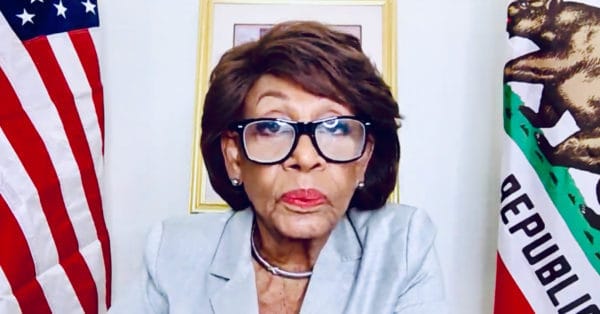Today was the 3rd, and perhaps final, hearing held by the House Committee on Financial Services regarding the GameStop (NYSE:GME) sage regarding short selling by traders chatting on Reddit. As most people are aware, investors on subreddits like Wallstreetbets, combined to drive the value of GameStop shares considerably higher by dramatically bidding up the price. Hedgies who had shorted the stock lost money. Many of these trades occurred on Robinhood, a digital investment platform that is popular with a younger demographic due to its no-fee approach to trades, that struggled to keep operating during the height of trading.
Today, shares in GameStop trade around $160/share – well off its 52 week high of $483/share but a huge increase from its 52 week low of just $3.77.
The hearing, entitled Game Stopped? Who Wins and Loses When Short Sellers, Social Media, and Retail Investors Collide, Part III, saw the participation of Michael Bodson, CEO of DTCC, Robert Cook, CEO of FINRA, and Gary Gensler, the new Chairman of the Securities and Exchange Commission (SEC).
So did we learn anything new?
The Committee memo proceeding the hearing outlined issues such as payment for order flow, clearing firm risk, transparency, and gamification. These issues were addressed in both prepared remarks and during the Q&A portion of the hearing.
In prepared remarks, Bodson noted that the National Securities Clearing Corporation (NSCC – part of DTCC) experienced the two highest transaction volume days in its history on Wednesday, January 27, and Thursday, January 28 – when GameStop hit its all-time high. The heightened level of trading caused Robinhood to raise more capital. DTCC is now working towards facilitating a T+1 trading cycle (a trade is currently settled one day after it is made) – something that would mitigate risk in post-trade processing:
“DTCC has long worked with the industry to identify ways to enhance efficiency and reduce costs in post-trade processing. Following a multi-year, industry-wide effort, securities settlement was shortened in 2017 from T+3 to T+2, achieving margin savings estimated at 25%. Shortening the settlement cycle beyond T+2 would reduce the risks that drive margin requirements and further reduce costs to clearing members. Over the past year, DTCC has worked with a cross-section of clients and stakeholders to explore the benefits of moving to T+1 or T+0. DTCC has conducted pilot projects exploring new technologies that could be employed in accelerated settlement or even real-time gross settlement (“RTGS”). Additionally, DTCC is exploring an integrated settlement model with clearing members that could introduce more settlement efficiencies between NSCC and DTC, which is the central securities depository for the U.S. market, to reduce margin demands at NSCC. DTCC published a white paper in February 2021 outlining several steps that DTCC was exploring with the industry to accelerated settlement for equities, which recommended that the industry cooperate to achieve T+1 settlement within three years.6 DTCC is working with the Securities Industry and Financial Markets Association and the Investment Company Institute to advance this important effort.”
Cook addressed some of the trading restrictions that kicked in during heightened times of volatility. Cook said that the trading activity of GameStop and some other shares did not represent disruption across markets in contrast to was has been experienced in the past. He did highlight two important points:
“First, our markets and the environment in which they operate are dynamic and continually evolving, with market participants and others constantly innovating new technologies, methods of communication and investment products and services. These innovations can be beneficial for investors – such as by providing easier access to the markets, lower costs and a wider range of investment choices – but they can also present new and sometimes unanticipated risks for investors. Second, in light of this ongoing evolution in the markets and related changes in investor behavior, regulators must continually review the standards applicable to financial intermediaries and the securities markets more generally and consider whether they should be updated to better protect investors and promote market integrity.”
Cook said that FINRA has a working group reviewing member firm conduct during the saga. The group is addressing multiple issues including order routing practices of member firms, including payment for order flow and compliance with order handling and best execution requirements.
Cook also mentioned the evaluation of gamification of trading – something Robinhood has been accused of doing, possibly to the detriment of investors.
“Given the growing prevalence of these features, this is an area where we are evaluating whether additional rulemaking or guidance may be necessary to ensure that their use by broker-dealers is consistent with investor protection. We are considering publishing a Regulatory Notice seeking additional information on the use and impacts of gamification or, alternatively, supporting any SEC request for comment on these developments.”
Gensler, making his first appearance on the Hill as the Chairman of the Commission, said the series of players and the aforementioned events regarding the short squeeze of GameStop shares represent a larger theme – that of the intersection of technology and financial services.
Gensler said the SEC is working on a staff report pertaining to these markets event that should be published at some point this summer. Some of the issues covered in this report should include the following:
- Gamification and User Experience
- Payment for Order Flow
- Equity Market Structure
- Short Selling and Market Transparency
- Social Media
- Market “Plumbing”: Clearance and Settlement
- System-Wide Risks
As is typical during these types of hearings, a good amount of the questions from Committee members is regarding unrelated issues as it is an opportunity to question policymakers in a public forum. Multiple members queried Gensler on digital assets and crypto exchanges and his potential policy approach during his tenure.
Overall, it appears that following the SEC’s report there could be policy movement on several hot button issues.
Expect payment for order flow and gamification to garner a good amount of scrutiny and perhaps regulatory changes. The transition to T+1 is already in the works.
The Chairwoman of the Committee, Maxine Waters, targeted Citadel’s market dominance when it comes to the settlement of retail trades. Gensler said that competition is good and concentration – not so much.
Gensler, who shouldered most of the questions, shined with his ability to dodge tough questions reminding members he has been on the job for only three weeks. As a Democrat appointee, the Committee’s questions directed towards Gensler were less pointed. Gensler noted that transparency is the heart of fair markets and he believes more may be necessary. He reminded committee members that the law is about fraud and manipulation and he looks forward to working with Congress on changes that demand legislation. Perhaps the comment of most interest was his opinion that crypto-markets, or crypto exchanges, are in need of more oversight when it comes to investor protection.
The Hearing was affiliated with several proposed bills including a bill to ban payment for order flow, requirements options trading for retail investors, and a study on gamification. None of these bills should make any progress, if at all, until the SEC’s report is published this summer.



